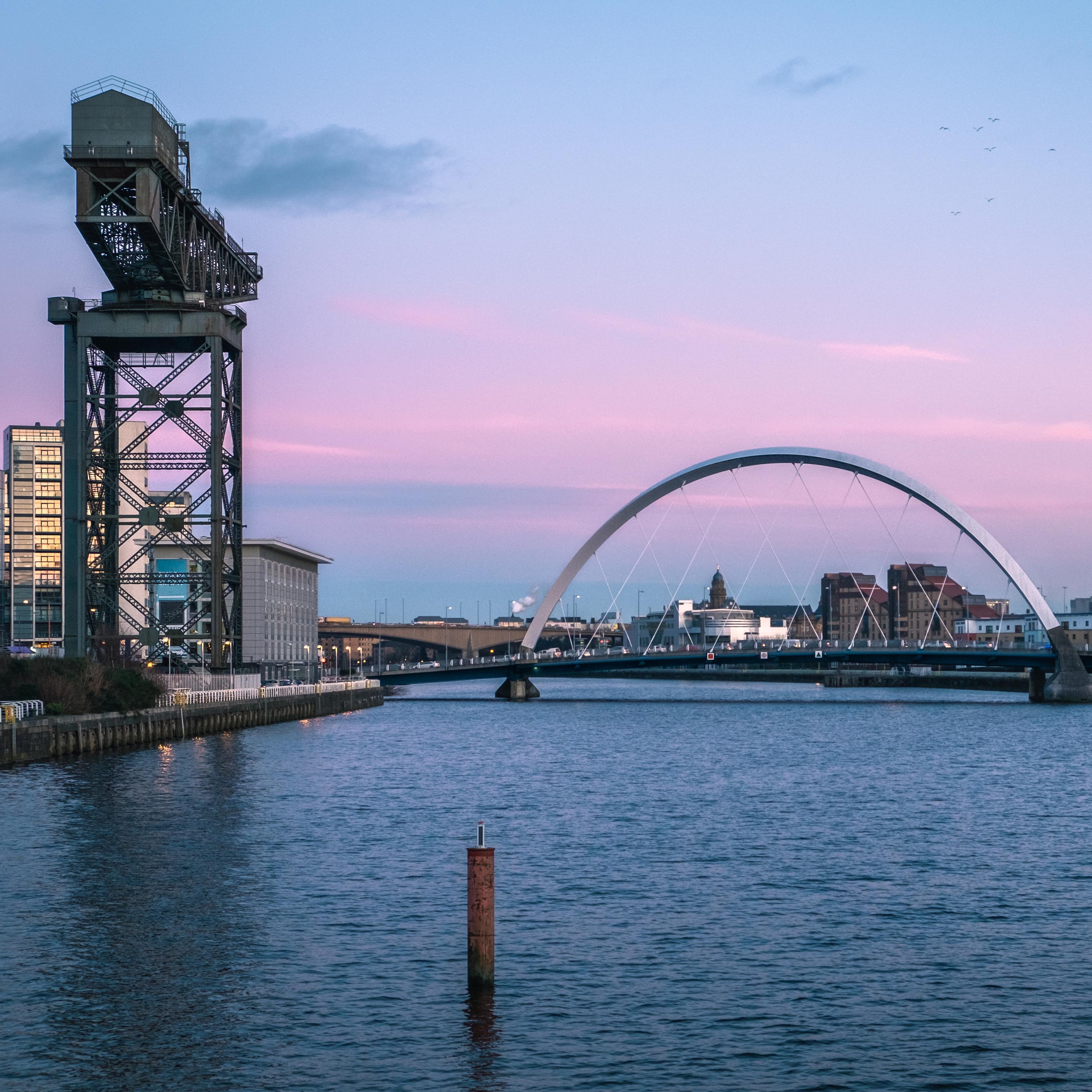Our students & graduates
Sustainable fashion - Louise Thomson
Environmental Entrepreneurship MSc student and founder of sustainable activewear brand, White Pepper Apparel
Strathclyde is recognised as one of the best universities in the UK and the MSc Environmental Entrepreneurship course is the first of its kind in Europe

Pilar Amieva
Pilar was always interested in environmental issues and studying an MBA at Strathclyde has helped her set up her zero waste shop, The Good Choice.
Nick Coulson
Distance learning student, Nick, completed his MSc in Hydrogeology from Australia in 2020. He is now working in industry to obtain professional accreditation as a hydrogeologist.
Our campus & in Glasgow
Climate Neutral Innovation District

Strathclyde is leading an ambitious project to create a 100 per cent renewable, climate neutral and climate resilient area within Glasgow City Innovation District (GCID). The project aims to integrate heat, power, transport, climate adaptation and wellbeing solutions that will benefit everyone in the area of the Innovation District.
Greenhouse gases in Glasgow’s air to be monitored in real-time

A network of sensors installed across Glasgow schools will monitor levels of the greenhouse gas (GHG) carbon dioxide (CO2) in the city’s air, which contributes to climate change.
The network of 25 sensors will be installed by scientists from the University of Strathclyde as part of a trial to provide Glasgow City Council, for the first time, with real-time information on emissions of CO2 and various noxious gases in the city’s air.
Companies we've helped create
Huli - choose your own adventure
After working in industry, University of Strathclyde alumni Dr Steve Owens returned to Strathclyde to undertake a Knowledge Exchange position in the Department of Mechanical & Aerospace Engineering and Dr Chris Lowe became a Research Fellow at the University following completion of his PhD. In 2019, they co-founded spin out Huli – a route creator for outdoor enthusiasts that uses satellite technology.

Our research
A new chapter for solar power in Malawi
A solar microgrid has been installed in the Dedza district of Malawi, bringing a stable and low carbon electricity provision to a village previously unconnected.
The installation marks the first step in a new social enterprise strategy to provide sustainable energy access to 1 million people over the next 10 years and help achieve Malawi's Sustainable Development Goal targets.

Informing energy policy

Professor Keith Bell is a member of the Climate Change Committee, the UK’s independent advisor to the government on climate change. A number of researchers at Strathclyde are part of the UK Energy Research Centre (UKERC) including Professor Bell who was appointed one of UKERC’s Co-Directors in 2014.
The UK and Scottish Governments want to reduce emissions associated with the use of energy. How does it do this through policy?
Better weather forecasting

There is a strong demand for this new generation of predictions that bridge the gap between weather forecasts and long-range predictions to support climate-resilience and preparedness decision-making.
Strathclyde researcher, Chris White, is co-leading a new applications-focused science sub-project in collaboration with the UK Met Office that will explore the value of sub-seasonal to seasonal (S2S) forecasts and highlighting the opportunities and challenges facing their uptake.
Improving ocean & climate literacy
Strathclyde is working to improve education and to facilitate youth and wider citizen participation in decision-making, by developing a ‘cradle-to-grave’ multi-level ocean literacy programme.